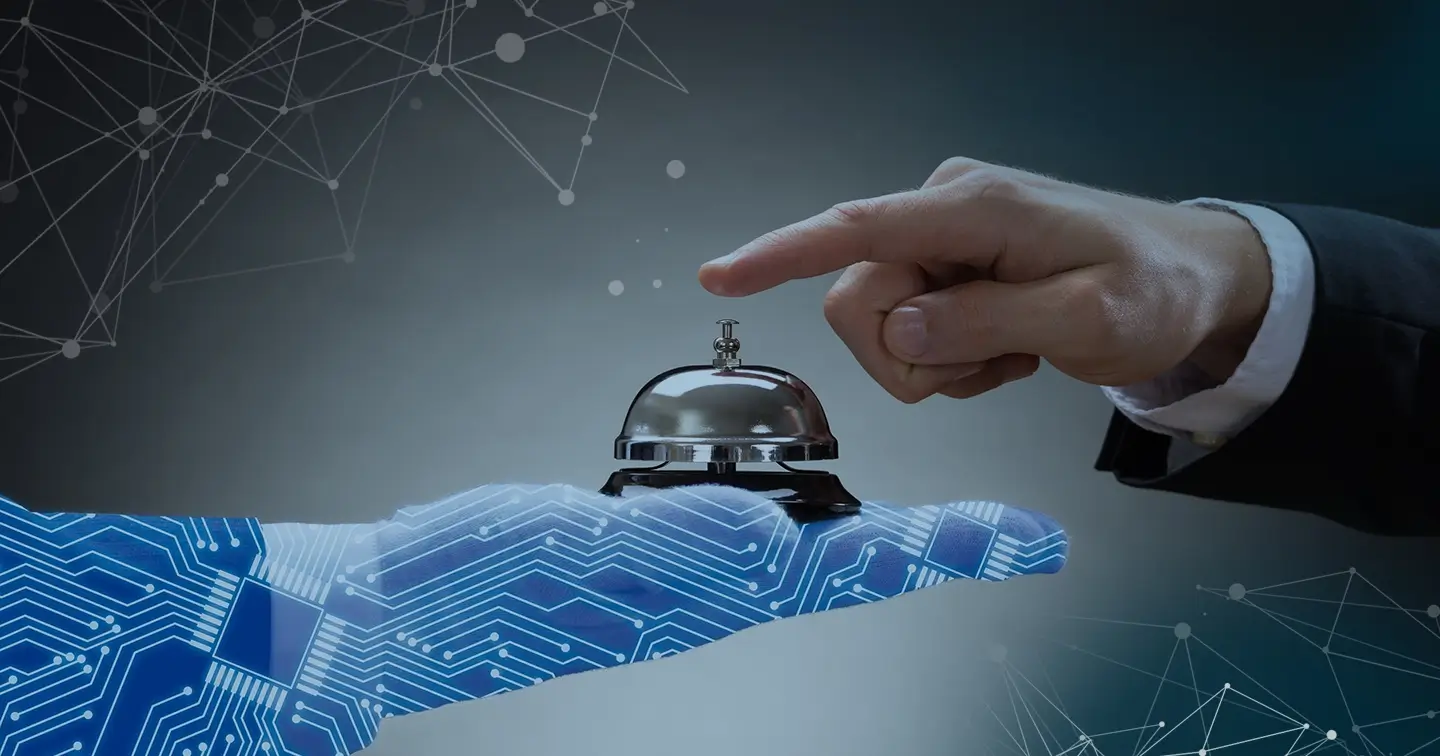Revolutionizing Hospitality: The Impact of AI in the Hotel Industry
by
-
5 minutes read
-
March 30, 2021

Introduction
The hospitality industry has always been at the forefront of adopting cutting-edge technology to enhance guest experiences and streamline operations. In recent years, artificial intelligence (AI) has emerged as a game-changer in the hotel industry, revolutionizing the way hotels interact with guests, manage operations, and optimize their services. In this blog post, we will explore the various applications of AI in the hotel industry and the benefits it brings to both guests and hoteliers.
Personalized Guest Experiences
One of the most significant impacts of AI in the hotel industry is its ability to provide personalized experiences to guests. AI-powered chatbots and virtual concierges, for example, can engage with guests from the moment they book a room until they check out. These intelligent systems can recommend personalized services, answer questions, and even remember guest preferences from previous stays, such as room temperature, favorite amenities, or dining choices. This level of personalization enhances guest satisfaction and loyalty.
Efficient Operations
AI helps hotels optimize their operations by automating repetitive tasks and making data-driven decisions. For instance, AI can be used for demand forecasting, helping hotels adjust staffing levels and room rates based on historical data, current trends, and events in the area. Additionally, AI-driven systems can manage inventory and supplies more efficiently, reducing waste and costs.
Enhanced Security
The safety and security of guests and their belongings are paramount in the hotel industry. AI plays a crucial role in enhancing security through facial recognition, biometric authentication, and surveillance systems. AI-powered cameras can monitor public areas and identify suspicious activity in real-time, helping hotel staff respond swiftly to potential security threats.
Chatbots and Virtual Assistants
Chatbots and virtual assistants have become indispensable tools in the hotel industry. They can handle routine inquiries, provide information about the hotel‘s amenities, and even assist with room service orders. Guests appreciate the convenience of instant responses, and hotels benefit from reduced workload for their staff, especially during peak hours.
Predictive Maintenance
To ensure that facilities are always in top condition, hotels employ AI for predictive maintenance. AI systems can analyze data from various sensors to predict when equipment or infrastructure might require maintenance or replacement. This proactive approach reduces downtime, prevents unexpected issues, and ultimately enhances guest satisfaction.
Revenue Management
AI-driven revenue management systems help hotels optimize pricing strategies in real-time. By analyzing data on occupancy rates, demand, and competitor pricing, these systems can adjust room rates to maximize revenue and occupancy levels. This dynamic pricing strategy ensures that hotels can adapt to market fluctuations and achieve better profitability.
Guest Feedback Analysis
Understanding guest feedback is essential for continuous improvement. AI-powered sentiment analysis tools can automatically analyze guest reviews and social media comments to identify trends, areas for improvement, and positive aspects of the guest experience. This data-driven approach enables hotels to make targeted changes that enhance guest satisfaction.
Conclusion
Artificial intelligence has become an integral part of the hotel industry, transforming the way hotels operate and interact with guests. From personalized experiences and efficient operations to enhanced security and revenue optimization, AI offers numerous benefits to both hoteliers and their guests. As technology continues to evolve, the hotel industry will undoubtedly find even more innovative ways to leverage AI to create memorable and seamless guest experiences. Embracing AI is not just a choice for hotels; it‘s a necessity to stay competitive in today‘s dynamic hospitality landscape.